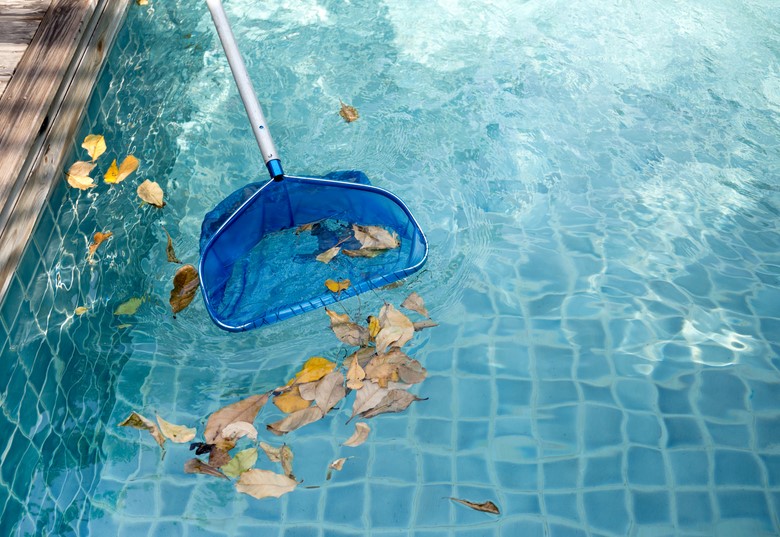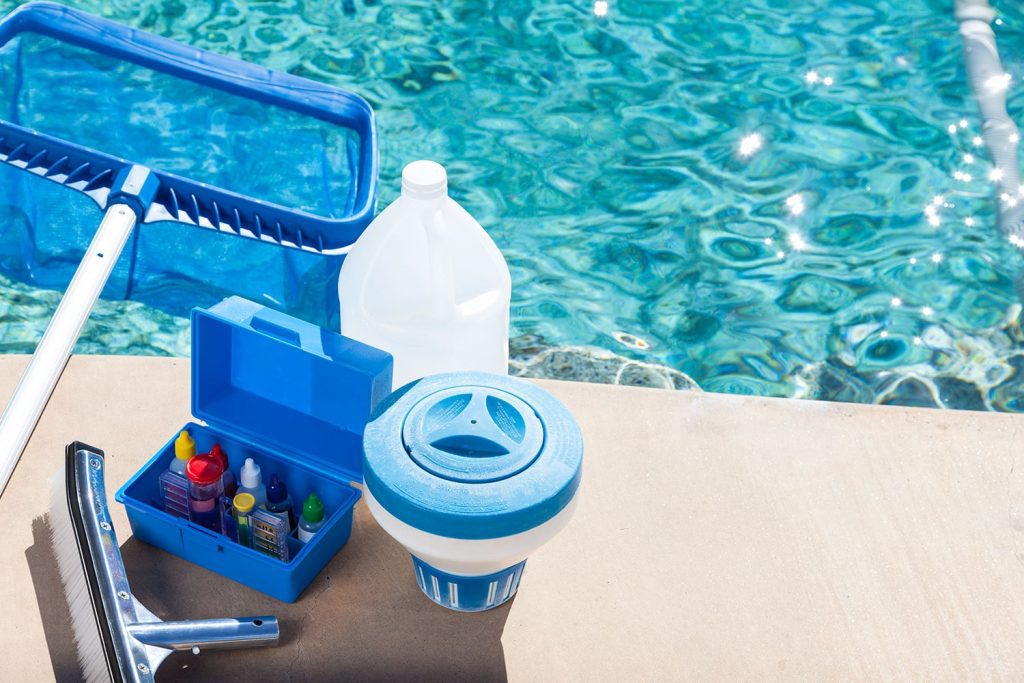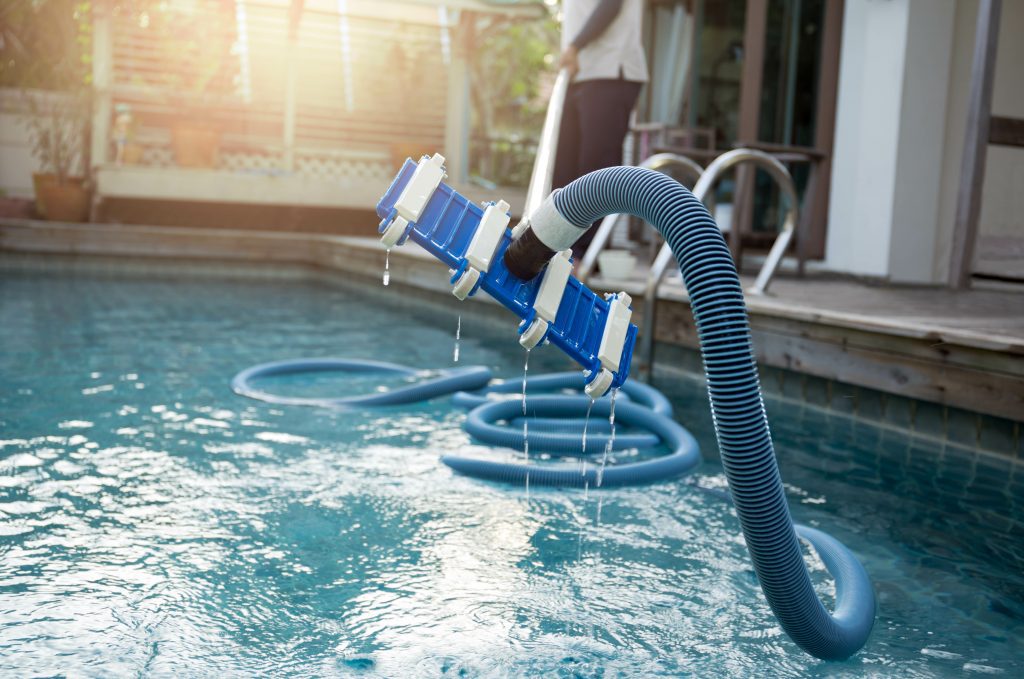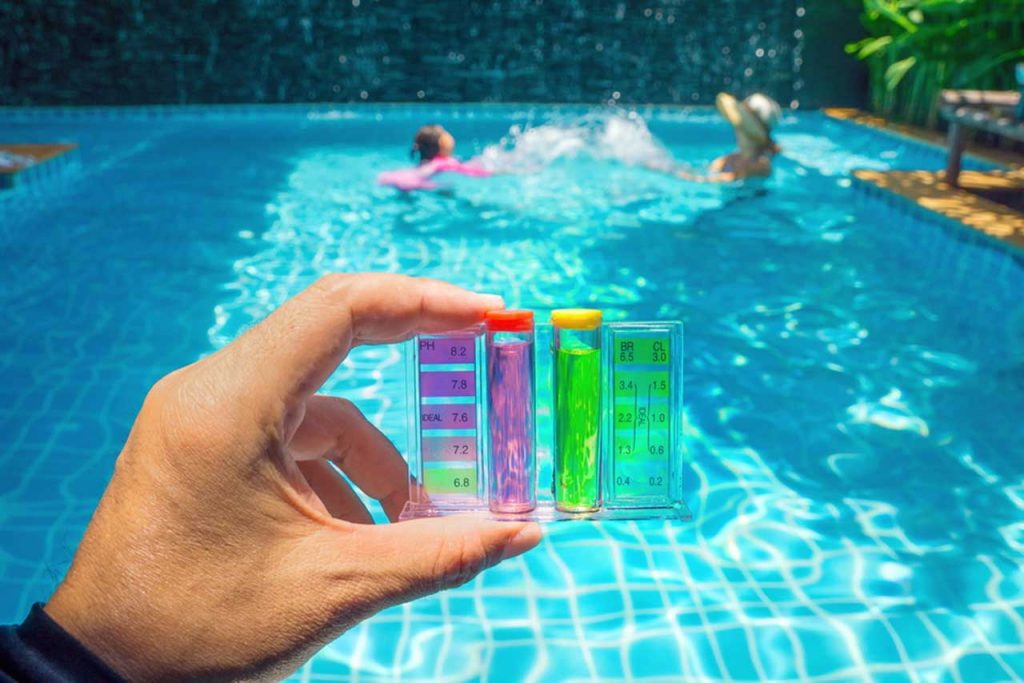POOL MAINTENANCE

Your pool is not just a huge tub filled with water, it’s a whole mechanical system at work. Like our body, it has many parts and every part has a specific function. It’s a working system that needs to be replenished every once in a while.
More often than not, a pool deserves some downtime for you to check if its parts are properly working. This is where pool maintenance comes into play.
Pool maintenance, whether you do it on your own or call on a service provider for some assistance, is not hard when you understand the basics of how the system works.
Without a proper maintenance routine, your pool could suffer dreadful conditions: dirty water, broken filters, algae build-up, and many more. As professional pool builders, we offer top-notch pool maintenance services!
Pool Maintenance San Diego, CA
For your pool maintenance, you need to know the components of your pool and their specific functions. Here are the basic parts you need to be familiar with:
Pool Water
Of course, a pool cannot be a pool without water. It might seem like a no-brainer but the water is the part where you should pay close attention to. Keep it clean, clear, and balanced to protect your swimmers from contaminants and pollutants.
Pool Interior
The pool interior covers the surfaces of your pool from its walls down to the floor. Because the walls of your pool liner are in direct contact with pool water, always make sure that these attached surfaces are kept in the best repair, free of algae, bacteria, and contaminants that would potentially damage your pool in the long run.
Pool Pump
The heart of any pool’s circulation system is the pump. Like your heart does with your blood, the pump keeps your water circulating. It pulls water from the pool through the skimmer and main drain, pushes it through the filter, and returns it to the pool through the main returns.
Pool Skimmers and Returns
If the pool pump is the heart, then your skimmers and returns are its veins and arteries. Your skimmers (not the net skimmer attached to a telescoping pole) drag water into the filter system for cleaning. Meanwhile, the returns push the filtered water back into the pool.
Pool Filter System
You can think of the pool filter as your liver that filters last night’s dinner. The pool filter system clears the dirt, debris, and other contaminants present in your pool. Without an active filter system, your pool will soon be a cloudy, polluted, and un-swimmable wasteland.
POOL MAINTENANCE TIPS
Circulation
Ideally, a pump should work 24 hours a day, 7 days a week. However, not all pool owners have the budget nor the equipment to maintain that. So, a running pump for 8 hours a day is good enough to have a consistent flow of water.
While the water is continuously flowing, make sure to run your filtration system regularly so that your pool will less likely have contaminants like dirt, bacteria, and pollutants from the surroundings.
Backwashing is also another key component to keep a good pool circulation. Backwashing means reversing the flow of water and rerouting the water out of the pool through a waste port.
Make sure to backwash the filter once a month. Or check regularly if it needs backwashing depending on the amount of dirt it gathers.



Cleaning
You’re not done yet, time to use the skimmer, brush, and vacuum. The walls of the pool should be brushed to prevent algae build-up. It’s recommended to brush at least twice a week.
Once you’ve brushed every surface around the pool, time to do some vacuuming to ultimately remove the dirt and algae that have been scraped off from brushing.
On the other hand, the skimmer is used to remove debris such as fallen leaves or sticks from the surface of the pool. Try to skim daily because the more frequent you skim, the more debris you can keep away from your filter, and the less work the filter has to do.
Chemistry
Basic pool chemistry will be as easy as ABC once you know your pool chemicals and how to balance them. Knowing your pool chemistry will make your pool upkeeps manageable and less time-consuming.


